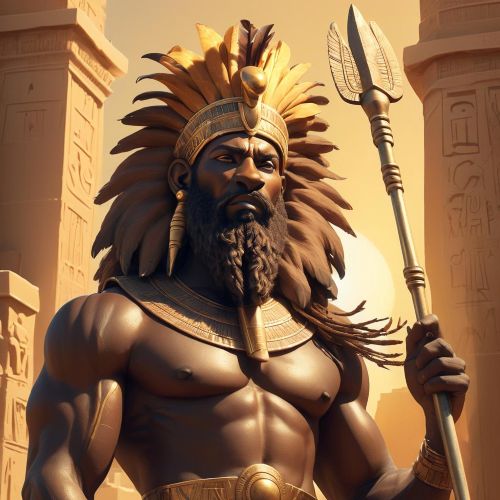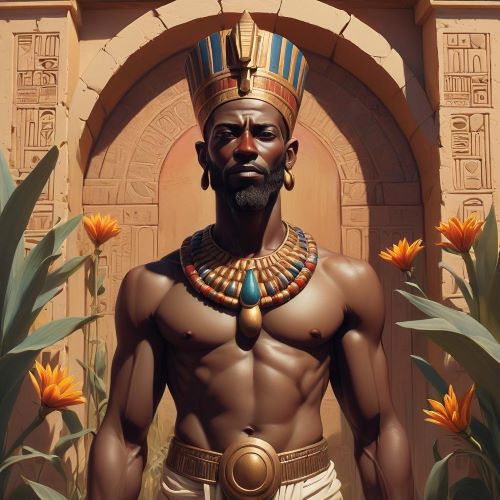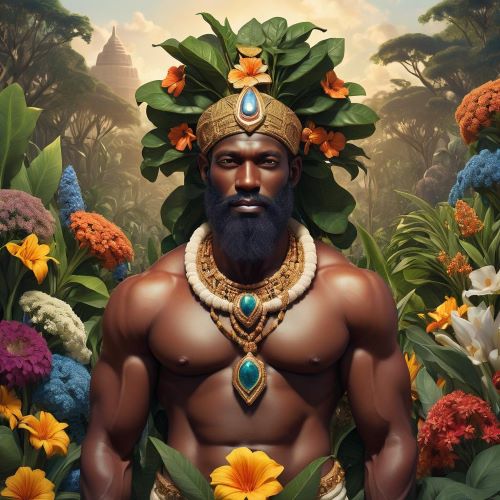Nubian Gods are central figures in the mythology of ancient Nubia, a powerful civilization that thrived along the Nile in what is now southern Egypt and northern Sudan. These deities played key roles in shaping the spiritual and cultural identity of the Nubian people, influencing creation myths, royal authority, and everyday life. While often sharing similarities with neighboring Egyptian gods, Nubian Gods possess their own unique identities, stories, and sacred functions. They were deeply woven into the fabric of Nubian society, guiding human destiny, protecting the land, and linking the mortal world to the divine.
The pantheon of Nubian Gods includes powerful creators, sun deities, river spirits, and protectors of royalty. Gods like Apedemak, the lion-headed war god, stood as symbols of strength and kingship, often associated with the Nubian ruling class. Others, such as the sun god Dedun, represented wealth, incense, and prosperity. These gods were frequently honored in elaborate temples and rituals, with offerings made to ensure harmony between the divine and human realms. Their images were carved into stone, painted on walls, and invoked through sacred texts and ceremonies, highlighting their enduring influence across centuries.
Many Nubian Gods were associated with natural forces, particularly the life-giving waters of the Nile, the blazing sun, and the fertile lands. Their myths reflected a deep reverence for the environment, portraying the gods as both protectors and powerful forces of nature. Worship practices often centered around sacred sites like Napata and Meroë, where temples were dedicated to the gods, and priests maintained the spiritual link between the heavens and the earth. Through seasonal festivals and royal rituals, the people of Nubia honored these deities and sought their blessings for peace, fertility, and protection.
Nubian religion also emphasized the divine right of kings, and rulers were often seen as chosen by the gods or even partially divine themselves. Pharaohs and queens of Nubia, especially during the Kushite Dynasty, aligned themselves with the gods through inscriptions, statues, and temple constructions. This spiritual legitimacy helped unify the kingdom and establish strong governance grounded in divine authority. Gods like Amun were adopted and revered in Nubia, but with local interpretations and rituals that reflected distinctly Nubian traditions and beliefs.
Today, the legacy of Nubian Gods continues to inspire historians, spiritual seekers, and cultural enthusiasts. Their stories and symbols offer insight into a civilization rich in tradition, wisdom, and spiritual depth. Modern efforts to reclaim and celebrate Nubian heritage often highlight these ancient deities, showcasing their role in shaping one of Africa’s greatest civilizations. As interest in African mythology grows, Nubian Gods are gaining recognition for their unique contributions to global mythological history. Their presence endures as powerful symbols of identity, resilience, and the sacred connection between humanity and the divine.



